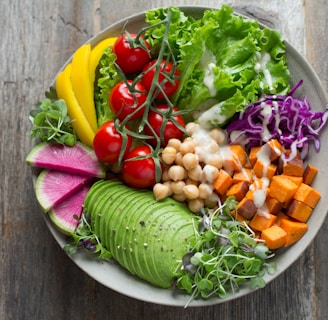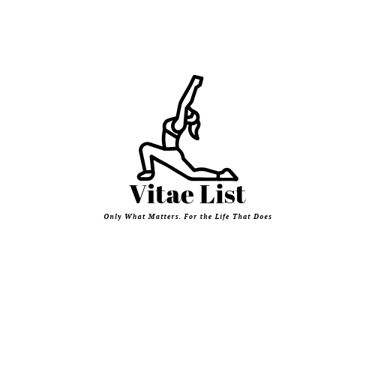Plant-Based Diets: Benefits, Challenges, and How to Get Started
Thinking of going plant-based? Learn the key benefits, common challenges, and simple tips to help you start a sustainable, healthy plant-forward lifestyle.
NUTRITION
Vitae List
7/11/20253 min read


Plant-Based Diets: Benefits, Challenges, and How to Get Started
Discover how plant-based eating supports health and sustainability, plus easy beginner tips
Disclosure: As an Amazon Associate, we earn from qualifying purchases. Some of the links in this post may be affiliate links, which means we may earn a small commission at no extra cost to you.
Plant-based diets are more than just a wellness trend—they’re a powerful approach to nutrition that supports long-term health, boosts energy, and reduces your environmental footprint. But for many, making the shift can feel overwhelming.
In this guide, we’ll break down the real benefits of plant-based eating, common challenges to expect, and simple steps to help you ease into a more plant-powered lifestyle—without the pressure of perfection.
🌱 What Is a Plant-Based Diet?
A plant-based diet emphasizes whole, minimally processed foods that come from plants, including:
Vegetables and fruits
Whole grains
Legumes (beans, lentils, peas)
Nuts and seeds
Plant-based oils and herbs
It doesn’t necessarily mean going 100% vegan. Some people choose to include occasional animal products—like fish, eggs, or dairy—while still making plants the foundation of their meals.
💚 Health Benefits of Plant-Based Eating
Numerous studies show that plant-based diets can lead to:
1. Improved Heart Health
Lower levels of saturated fat and cholesterol reduce the risk of high blood pressure, heart disease, and stroke.
2. Better Digestive Health
Fiber-rich foods feed your gut microbiome, aid regularity, and reduce inflammation.
3. Weight Management
Plant foods tend to be lower in calories but high in nutrients, helping you feel full and satisfied.
4. Lower Risk of Chronic Disease
A plant-forward diet may help prevent or manage conditions like type 2 diabetes, obesity, and certain cancers.
5. More Energy and Mental Clarity
Whole, nutrient-dense foods support stable blood sugar, balanced moods, and steady energy levels.
🌍 Sustainability Perks
Eating more plants doesn’t just help your body—it helps the planet. Compared to animal agriculture, plant-based diets:
Use fewer natural resources (land and water)
Emit significantly less greenhouse gas
Reduce deforestation and ocean pollution
Even small changes, like cutting back on meat once a week, can make a meaningful impact.
⚠️ Common Challenges (and How to Handle Them)
Transitioning to a plant-based lifestyle comes with a learning curve. Here are the top obstacles—and practical fixes.
1. Not Getting Enough Protein
Try: Lentils, chickpeas, tofu, tempeh, seitan, quinoa, nuts, and protein powders made from peas or rice.
2. Vitamin and Mineral Gaps
Key nutrients to watch:
Vitamin B12 (consider a supplement)
Iron (found in beans, greens, and fortified cereals)
Omega-3s (add chia, flaxseeds, or algae-based supplements)
Calcium and Vitamin D (found in fortified plant milks)
3. Cravings or Hunger
If you feel unsatisfied, you may need to increase healthy fats and protein, or focus on more complex carbs like sweet potatoes, oats, and whole grains.
4. Social Situations or Travel
Plan ahead: Research restaurant options, pack snacks, and don’t be afraid to ask for plant-based swaps at meals.
🥦 How to Start a Plant-Based Diet (Without Overwhelm)
You don’t have to overhaul your life overnight. Try these beginner-friendly tips:
✅ Start with “Meatless Mondays”
Pick one day a week to go plant-based. Expand from there as you feel comfortable.
🥗 Swap Smart
Replace ground meat with lentils in tacos or use almond milk instead of dairy in smoothies.
🍽️ Build Your Plate Like This:
½ plate: Vegetables and fruits
¼ plate: Whole grains (brown rice, quinoa, oats)
¼ plate: Plant protein (beans, tofu, tempeh)
🔄 Keep It Flexible
Some days might be fully plant-based. Others might include a little fish or eggs. It’s okay. Progress over perfection.
🌟 Final Thoughts
A plant-based diet doesn’t need to be restrictive or complicated—it’s about eating more whole foods that nourish your body and support the planet. Whether you're curious, committed, or somewhere in between, even small steps can lead to big results for your health and the environment.
Ready to feel lighter, more energized, and more connected to your food choices? Let the power of plants do the heavy lifting.
